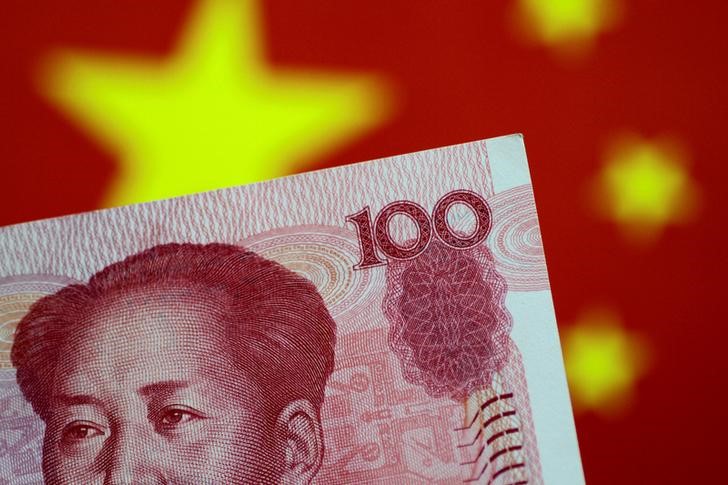By David Lawder and Koh Gui Qing
WASHINGTON (Reuters) - The U.S. Treasury is considering ways to restrict sensitive Chinese investments in the United States by invoking an emergency powers law and bringing forward some security review reforms for corporate acquisitions, a senior Treasury official said on Thursday.
Assistant Secretary for International Markets and Investment Heath Tarbert told an Institute of International Finance Forum that the efforts were being examined as part of the Trump administration's "Section 301" intellectual property remedies, which include China-specific investment restrictions.
Asked about reports the Treasury may bring forward parts of a bill to modernize security reviews by the Committee on Foreign Investment in the United States and use the International Emergency Economic Powers Act, Tarbert said a special Treasury office devoted to the China restrictions was considering such avenues.
"We have separate offices in Treasury which are considering those two issues distinctly," Tarbert said.
A Treasury office that manages CFIUS is separate from the office working on China investment restrictions, he said.
The Treasury investment restrictions are aimed partly at pressuring China to lift requirements for foreign companies to form joint ventures with local firms that lead to technology transfers, a policy the administration deems unfair when the United States has no such restrictions on Chinese firms.
In a major policy shift, China said on Tuesday it would scrap a 50 percent limit on foreign ownership of autos by 2022.
Tarbert said the Treasury was committed to working with Congress to pass the CFIUS legislation, known as the Foreign Investment Risk Review Modernization Act, or FIRRMA.
"We think CFIUS modernization is something that needs to be done via statute and should be done in a thoughtful way," he said.
A congressional aide told Reuters it may be possible to accelerate parts of the CFIUS reform bill with an executive order to fill gaps until the legislation is passed by Congress later this year.
BROAD POWERS USED AFTER 9/11
Invoking the 1977 emergency economic powers law would give President Donald Trump broad authority to impose tighter restrictions on Chinese investment in sensitive sectors, by declaring a national emergency related to such investments.
The law was widely used after the Sept. 11 attacks in 2001 to block the assets of militant organizations and other illicit finance networks.
The CFIUS reform legislation is a work in progress. Tarbert said one of its aims was to expand reviews of sensitive transactions that do not involve a full transfer of control, including offshore joint ventures that could compromise national security through technology transfers.
Some lawmakers have raised concerns that could lead to an overly broad definition of transactions and choke off routine business investments.
Another Trump administration official, White House trade adviser Clete Willems, said the legislation would achieve a "balanced approach" that would close loopholes in the current CFIUS law while maintaining an "open investment climate" in the United States.
Tarbert said the legislation must not overlap with U.S. export controls aimed at prohibiting the export of restricted technologies, adding: "We also view export controls as the right measure to deal with tech transfer."

It was under the export control regime that the Commerce Department this week banned American companies from selling parts to Chinese telecoms equipment maker ZTE Corp (SZ:000063) for seven years, creating a new fissure in Sino-U.S. ties.